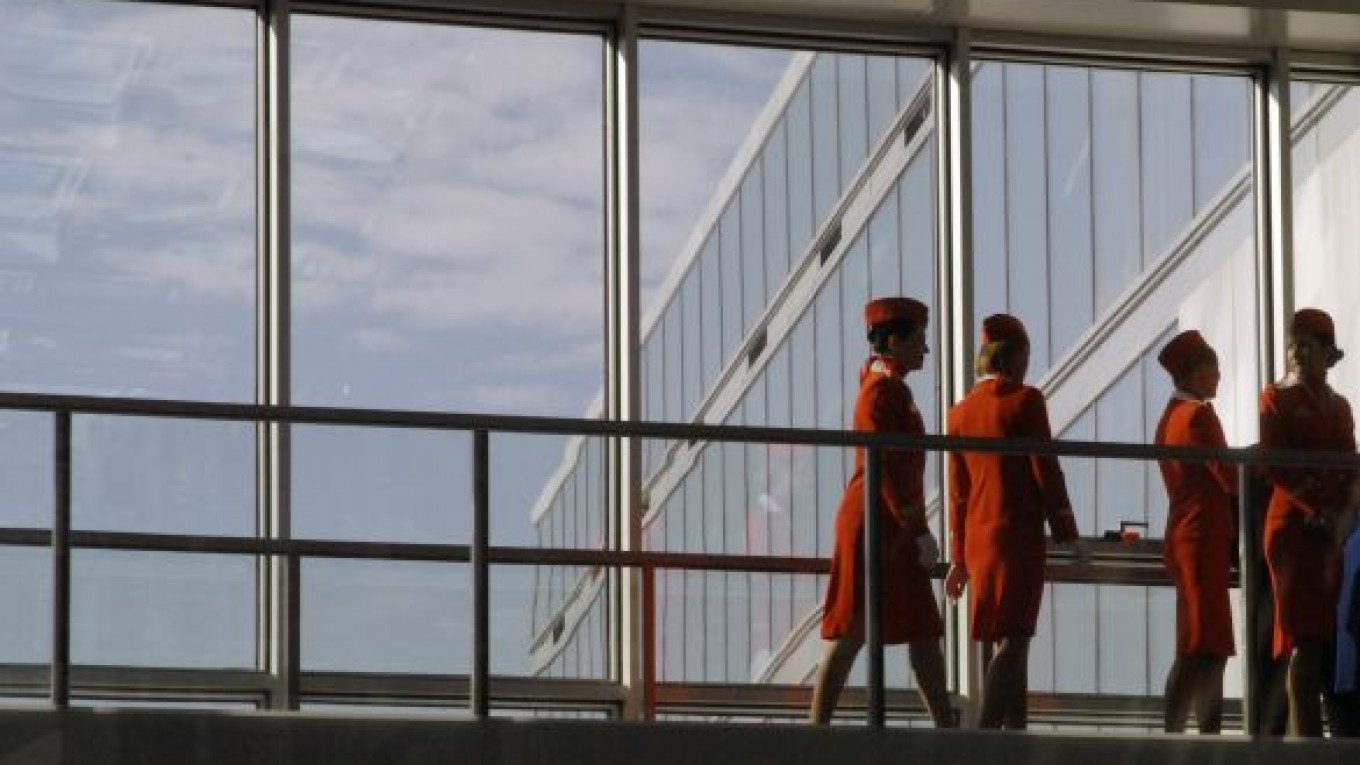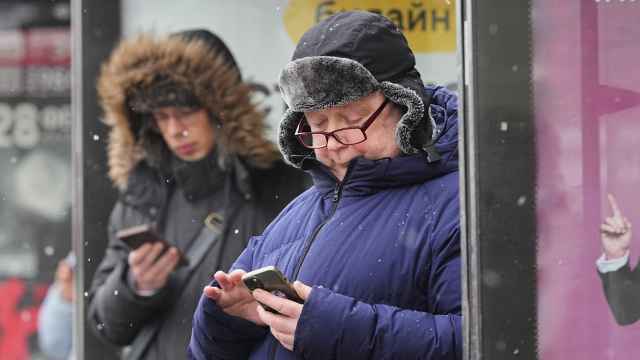Correction appended
The crews of some European airlines will need visas to enter Russia as of Nov. 1 if the European Union does not scrap its visa policy for Russian officials, Foreign Minister Sergei Lavrov said late Sunday in Luxembourg.
The declaration marked an escalation in the longstanding spat between Moscow and Brussels over a visa facilitation agreement.
"We have warned [our EU] partners that if we cannot sign an agreement in October, their airlines must obtain multiple-entry visas for their crews," Lavrov said after an official dinner with European counterparts, according to a ministry .
EU officials quickly rejected Lavrov's ultimatum and said the union would not back down, making it highly unlikely that the dispute would be resolved sometime soon.
"We ask Moscow to initiate the facilitation agreement without a waiver for service passport holders and with exemptions for air crews as foreseen," EU delegation spokesman Soren Liborius told The Moscow Times on Monday.
Brussels and Moscow have haggled for more than a year over an agreement that would introduce longer-term multiple-entry visas for businesspeople, journalists and staff of nongovernmental organizations.
The talks stalled last fall, when Moscow threatened to opt out of an accord exempting airline crews from visas after European negotiators refused to lift visa requirements for Russian government officials, who hold a special non diplomatic passports known as "service" passports.
EU officials have argued that entitlement to such passports is too loosely defined and the documents have no uniform equivalent in EU countries. Russia responded by offering to restrict the agreement to biometric service passports.
Lavrov argued Sunday that there are currently 15,000 biometric service passports in Russia, versus 150,000 service passports in the EU.
"We're ready to introduce a visa-free regime for all service passport holders, on a reciprocal basis," Lavrov said Sunday. He added that the EU included service passport holders in a recent visa agreement with Ukraine.
But EU officials were adamant that the issue was not negotiable.
Delegation spokesman Liborius argued that the visa facilitation agreement could have been signed last December had Moscow not insisted on a waiver for service passport holders.
"They chose not to grab the low-hanging fruit, which would have made life easier for millions of travelers on both sides," he said Monday by telephone.
The impending visa requirement for air crews would only affect 11 EU countries that have not already signed bilateral agreements with Russia on the issue.
Those countries include Finland, Belgium, Estonia, Latvia, Portugal, Greece and the Czech Republic, according to Liborius.
Belgian carrier Brussels Airlines, which flies daily from the Belgian capital to Domodedovo, confirmed on Monday that the airline had been informed of the potential changes and was now making preparations.
"The task is very big, especially given that our crew members only stay in the airport transit zone," company spokeswoman Wencke Lemmes-Pireaux said by telephone from Brussels. She said crew members would need business visas that require official invitations from the Federal Migration Service.
The spokeswoman added that Belgium does not make reciprocal demands from Russian crews. "We very much hope for a solution, either bilateral or on the EU level," Lemmes-Pireaux said.
Latvian carrier Air Baltic, which flies from Riga to Moscow, St. Petersburg and Kaliningrad, also confirmed that it would be subject to the visa rule.
"We will do everything to ensure that our passengers won't notice anything," company spokesman Janis Vanags said by telephone from Riga. He stressed that this included ticket prices.
The air-crew visa spat introduces a new twist in EU-Russia relations, which have been complicated recently by increased bickering over trade and energy issues and Moscow's steadfast support for embattled Syrian President Bashar Assad.
Lavrov also reiterated Moscow's position that both sides should soon sign an agreement on completely scrapping visas — something that European officials are very cautious about.
Both sides are currently completing a list of so-called common steps, some 40 requirements that range from enhancing passport and border security to harmonizing laws about human trafficking and repatriations.
Talks about scrapping visas can only start after all points have been agreed upon.
Lavrov complained last week that the EU was dragging its feet because of political considerations, but Liborius said both sides should do their homework first.
"Rather than focusing on dates, let us discuss substance," Liborius said. He confirmed that reports about progress would be discussed at the next EU-Russia summit, to be held in Brussels in the second half of December.
The difficulties markedly contrast with a visa agreement that was finalized with the United States last month, which promises three-year multiple entry visas to tourists and business travelers.
However, U.S. officials have dampened Russian hopes for a visa waiver program by saying this was not on the agenda.
Correction: An earlier version of this story incorrectly stated that Brussels Airlines flies daily to Sheremetyevo. In fact, the Belgian carrier runs daily daily flights to Domodedovo.
Related articles:
A Message from The Moscow Times:
Dear readers,
We are facing unprecedented challenges. Russia's Prosecutor General's Office has designated The Moscow Times as an "undesirable" organization, criminalizing our work and putting our staff at risk of prosecution. This follows our earlier unjust labeling as a "foreign agent."
These actions are direct attempts to silence independent journalism in Russia. The authorities claim our work "discredits the decisions of the Russian leadership." We see things differently: we strive to provide accurate, unbiased reporting on Russia.
We, the journalists of The Moscow Times, refuse to be silenced. But to continue our work, we need your help.
Your support, no matter how small, makes a world of difference. If you can, please support us monthly starting from just $2. It's quick to set up, and every contribution makes a significant impact.
By supporting The Moscow Times, you're defending open, independent journalism in the face of repression. Thank you for standing with us.
Remind me later.







